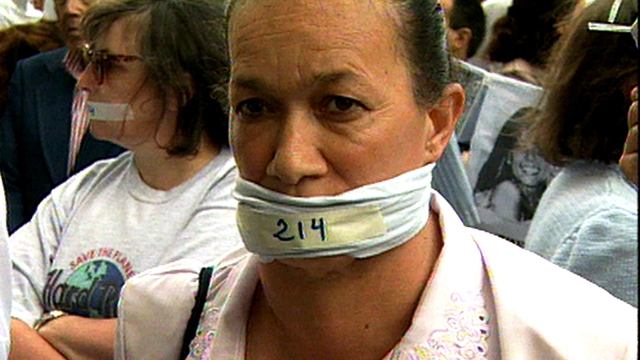Middle Class Revolt
The fragile state of Argentina when it defaulted.
 Argentina's 12-year battle with US bondholders has reached a critical phase, veering towards a second default. This report explores the fragile state of the nation the last time it defaulted, in 2002.
Argentina's 12-year battle with US bondholders has reached a critical phase, veering towards a second default. This report explores the fragile state of the nation the last time it defaulted, in 2002.
Chaos has hit the streets of Buenos Aires. Pots, pans and casserole lids are struck by angry protestors as they struggle to make themselves heard. "We are sick and tired of them stealing our money and lying to us," shouts Gilda Morales, an unemployed teacher." " Give me back the money I have earned and saved," shouts another. Outside the Italian embassy, disgruntled queues of immigrants stretch round the corner." There is no future here. I can't have a family here," says Carlos Guzman - an Italian foreman forced to go back to his homeland. In contrast to the noisy street protests, the long fashionable street, La Florida, is silent. Lurid discount posters line the windows. "Sales have more than halved," comments Maria Del Carmen - a shop manager. Outside the deserted town centre, one market is flourishing. In a closed down textile factory the aisles are bustling with people eager to buy and sell. Tables are stuffed full with fresh vegetables and even Argentian steak. This is the barter market - a closed club that you can only join if you have something to sell. Although illegal, the government are turning a blind eye because it is fulfilling the daily needs of millions of Argentians. But it is not a long term solution." We have been living beyond our means, and we must get used to a more spartan way of living," concludes analyst Rosenda Fragga.
FULL SYNOPSIS
Produced by Danmarks Radio

